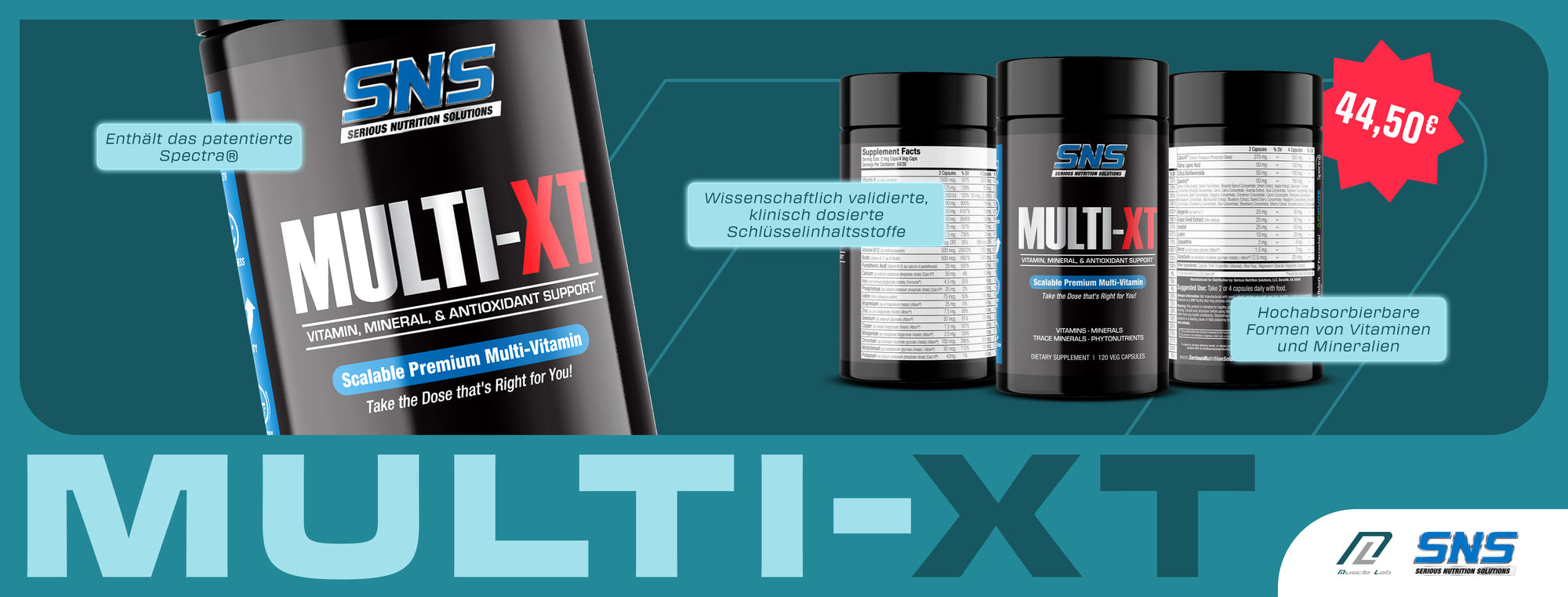Magnesium - Effects, dosage and requirements of the "athlete's mineral"
What is magnesium?
Magnesium is an essential mineral that, along with calcium, potassium, and sodium, is a particularly important nutrient. During a workout or exercise, we lose a lot of magnesium through sweating (2 liters of fluid lost through sweating can result in a loss of 10 mg of magnesium). Our body contains a total amount of magnesium equivalent to 0.05 percent of our body weight, and our magnesium levels comprise approximately 20-30 g of magnesium, distributed as follows:
- 50-60% are stored in our bones
- 1-2% in the blood
- The rest is located either in the liver or in the connective tissue
Functions and effects of magnesium
Magnesium is responsible for numerous functions in the body.
- Magnesium contributes to normal energy metabolism
- Magnesium contributes to normal muscle function
- Magnesium contributes to the normal function of the nervous system.
These are scientifically proven effects of magnesium. Particular attention is paid to supporting normal energy metabolism, muscle function, and the nervous system. If you take too little magnesium, you'll notice it because you get tired more quickly and lack energy for everyday life.
Magnesium deficiency – who is affected?
Magnesium deficiency is common in sports, particularly among competitive athletes. A higher magnesium intake is particularly important for competitive athletes and their associated performance, as magnesium supports muscle regulation during cramps and, in particular, prevents muscle cramps.
Foods with magnesium
We consume magnesium in our daily diet, but there are a few things that can help prevent a deficiency. The following information is based on 100 mg of magnesium per day and includes the foods with the highest magnesium content:
- Cocoa powder (defatted) - 598 (peak value)
- Pumpkin seeds - 400
- Sesame - 350
- Sunflower seeds - 350
- Amaranth - 300
- Cashew nuts - 270
- Almonds - 170
- Oat flakes - 140
- Wholemeal bread - 56
- White rice - 30
Magnesium supplements – tablets or capsules?
Magnesium is available in both tablets and capsules, and their effects are virtually identical. Magnesium can be taken as a supplement either on an empty stomach or on its own with a meal.
What forms of magnesium are there?
- Magnesium acetate
- Magnesium Bisglycinate
- Magnesium Carbonate
- Magnesium chloride
- Magnesium Gluconate
- Magnesium Lactate
- Magnesium hydroxide
- Magnesium Malate
- Magnesium oxide
- Magnesium pyruvate
Taking magnesium - Can you overdose on magnesium?
What is the individual magnesium requirement? How many mg of magnesium do I need per day to avoid a magnesium deficiency? The German Nutrition Society (DGE) provides the following average figures for each age group:
- Infants up to 60 mg
- Children between 1-10 up to 80-170 mg
- Adolescents up to 300 mg
- Adults <=19 years up to 400 mg
- Adults aged 25 and over up to 350 mg
- Pregnant women - 310 mg
- Breastfeeding women up to 390 mg
It is important to note that other people, such as alcoholics, people with chronic intestinal disease or those taking diuretics, also have a higher magnesium requirement or a magnesium deficiency.




